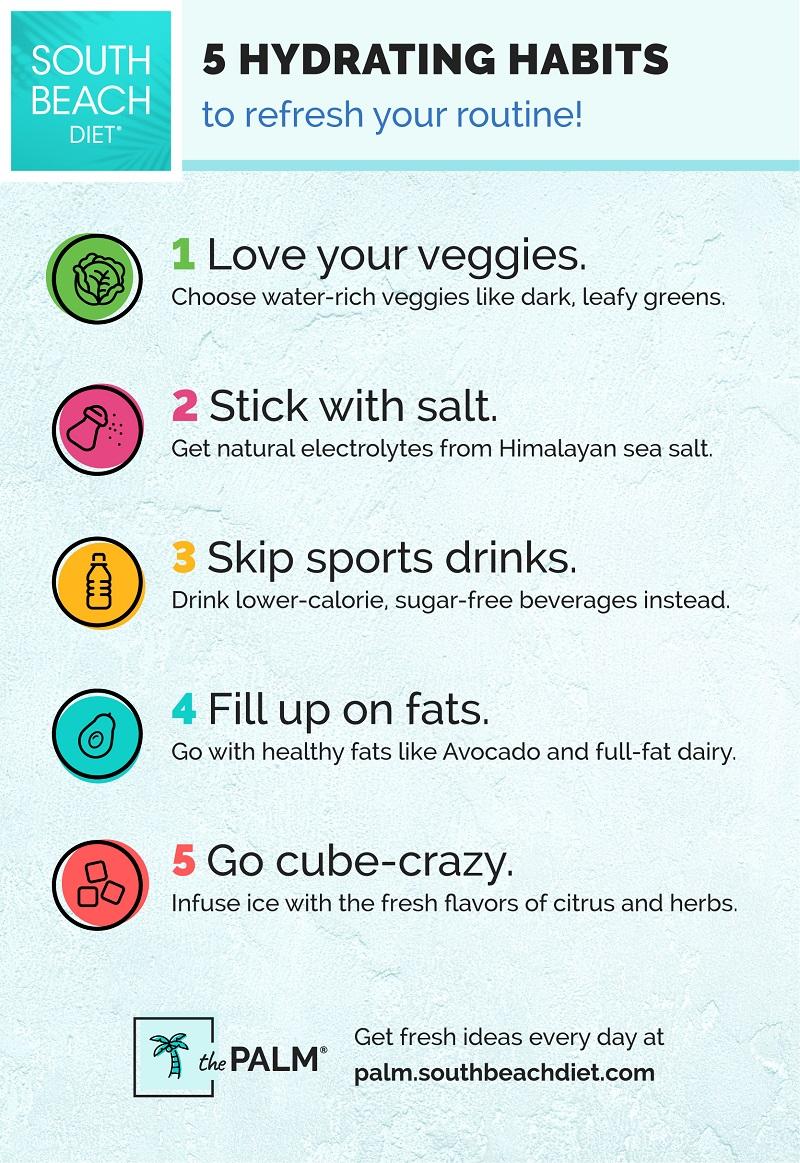In a world where wellness trends ebb and flow like tides, the call to ”stay hydrated” has remained a steadfast mantra. Bottled water brands, health influencers, and fitness gurus alike tout the benefits of ample hydration as if it were a sacred elixir. Yet, beneath this tidal wave of advice lies a curious question: Is the emphasis on hydration truly as critical as we’ve been led to believe, or has it been amplified beyond necessity in our modern health routines? This article embarks on a journey to explore the depths of our hydration habits, diving into scientific studies, expert opinions, and societal norms to uncover whether our obsession with water intake holds water—or if it’s time to let the excess flow away.
The Science Behind Hydration: Separating Fact from Fiction
In the realm of health and wellness, hydration is often touted as the cornerstone of a balanced lifestyle. But how much of this is backed by science, and how much is mere myth? The body is composed of approximately 60% water, making it undeniably essential for numerous physiological functions such as regulating temperature, maintaining cell health, and aiding digestion. However, the common belief that everyone must consume eight glasses of water a day lacks scientific consensus. Individual hydration needs can vary significantly based on factors like age, activity level, and climate.
- Myth: Coffee and tea dehydrate you.
- Fact: While caffeine has mild diuretic effects, the water content in these beverages can contribute to your daily fluid intake.
- Myth: Clear urine is a sign of optimal hydration.
- Fact: Urine color can be influenced by various factors, including diet and medications; pale yellow is generally a good indicator of adequate hydration.
while staying hydrated is crucial, it’s important to understand that overemphasizing water consumption without considering individual needs and lifestyle can lead to misconceptions. Listening to your body and drinking when thirsty is often a more effective strategy than adhering to rigid guidelines.

Daily Water Intake: Myths and Realities Unveiled
In the bustling world of health and wellness, the mantra of drinking eight glasses of water a day has echoed for decades. However, is this golden rule grounded in science, or is it simply a myth passed down through generations? The truth is, hydration needs are highly individualistic and influenced by a myriad of factors. These include:
- Age and gender
- Physical activity levels
- Climate and environment
- Dietary habits
While water is undeniably essential, overemphasizing its intake can sometimes lead to unintended consequences. Overhydration, though rare, can dilute essential electrolytes in the body, leading to a condition known as hyponatremia. The key is to listen to your body’s signals and understand that thirst is a natural indicator of your hydration needs. Instead of adhering to a rigid daily intake, focus on maintaining a balance that supports your unique lifestyle and health goals.

Hydration Habits: Balancing Needs and Overindulgence
In the pursuit of wellness, hydration often takes center stage, but the line between adequate consumption and excess can be surprisingly thin. While water is undeniably essential, the notion that more is always better can lead to unnecessary overindulgence. Understanding your body’s unique needs is crucial to maintaining balance.
- Listen to your body: Your thirst is a natural indicator of when you need more fluids. Trust this instinct over rigid consumption guidelines.
- Consider your lifestyle: Physical activity, climate, and diet all play a role in determining your hydration needs. Tailor your intake to these factors rather than adhering strictly to the eight-glasses-a-day rule.
- Beware of overhydration: Consuming excessive amounts can dilute essential electrolytes in your system, leading to hyponatremia, a potentially dangerous condition.
Striking a balance requires mindfulness and attention to the signals your body provides. Rather than adhering to generalized advice, cultivate a hydration habit that respects your personal lifestyle and physiological cues.

Expert Tips for a Balanced Hydration Routine
Understanding how to maintain a balanced hydration routine can be more nuanced than simply aiming for eight glasses a day. It’s essential to listen to your body’s signals and adapt your fluid intake to match your lifestyle and environment. Here are some expert tips to help you achieve optimal hydration:
- Adjust for Activity Level: If you’re engaging in intense physical activities or exercising regularly, increase your water intake to compensate for fluid loss through sweat.
- Consider the Climate: Hot and humid conditions may require additional hydration. Conversely, in cooler climates, you might need less.
- Balance Electrolytes: Incorporate foods or drinks that replenish electrolytes, especially if you’re sweating excessively. Coconut water or a homemade electrolyte drink can be beneficial.
- Monitor Your Urine Color: A simple yet effective way to gauge hydration is by observing the color of your urine. A pale yellow indicates adequate hydration, while darker shades suggest you need more fluids.
Remember, while staying hydrated is crucial, it’s just as important not to overdo it. Excessive water intake can lead to imbalances, so aim for moderation and be mindful of your body’s unique needs.
Key Takeaways
In the vast landscape of health and wellness, hydration stands as a pillar, both revered and scrutinized. As we navigate through the streams of advice and the currents of scientific research, it becomes clear that the role of hydration in our daily routines is not one-size-fits-all. While some may find solace in the simple act of drinking water, others may question the necessity of its prominence in their health regimen. Ultimately, the journey to optimal well-being is a personal one, where balance is key, and listening to our bodies remains paramount. As we close this exploration, let us sip thoughtfully and hydrate wisely, finding our own rhythm in the ever-flowing discourse on health.
